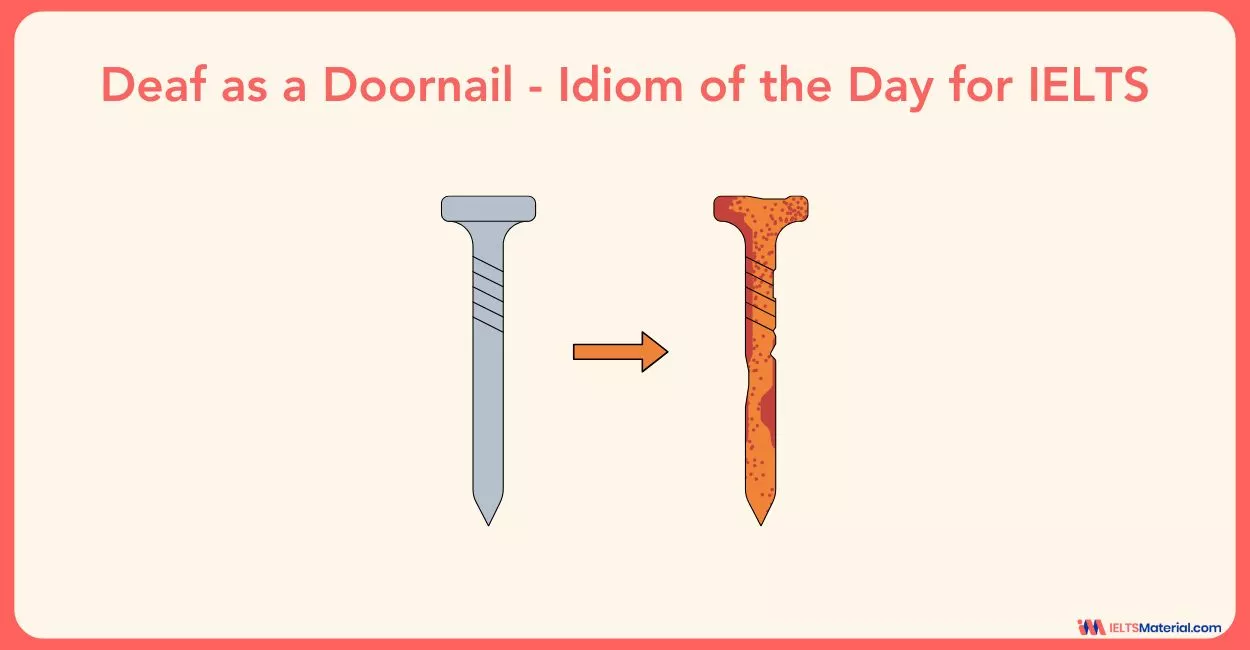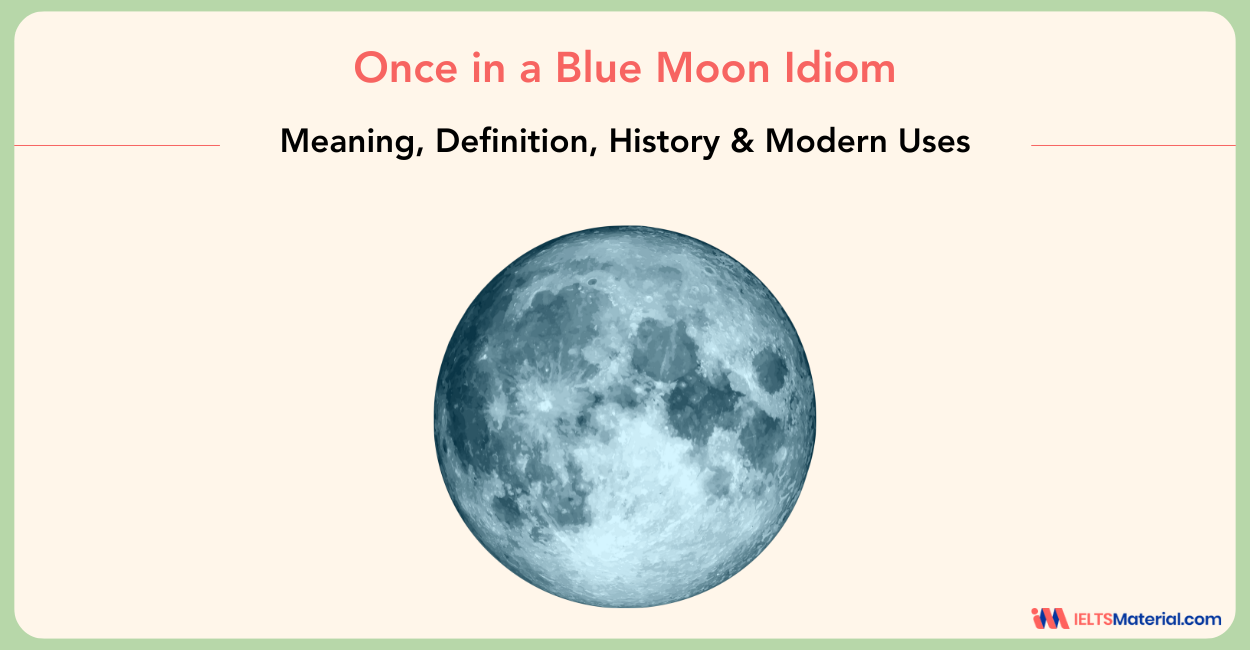Keep/Have One’s Finger on the Pulse (of something) Idiom: Meaning, Origin, Usage & Exercises
7 min read
Updated On
-
Copy link
The idiom ‘keep/have one’s finger on the pulse (of something)’ means to monitor the current state of something frequently. Learn the meaning, origin, and examples here, and then practice the exercises with answers to achieve an IELTS band score of 8+.
Table of Contents
- Keep/Have One’s Finger on the Pulse (of Something) Idiom: Meaning
- Origin of the Idiom ‘Keep/Have One’s Finger on the Pulse (of Something)’
- Keep/Have One’s Finger on the Pulse (of Something) Idiom Usage
- Keep/Have One’s Finger on the Pulse (of Something) Idiom-Related Synonyms and Phrases
- Keep/Have One’s Finger on the Pulse (of Something) Idiom: Detailed Usage in IELTS Contexts
- Keep/Have One’s Finger on the Pulse (of Something) Idiom: Practice Exercises
- Keep/Have One’s Finger on the Pulse (of Something) Idiom: Answer Keys for Practice Exercises

Limited-Time Offer : Access a FREE 10-Day IELTS Study Plan!
In an increasingly fast-paced world, being aware of what’s happening right now, whether in business, fashion, politics, or technology, is crucial. The idiom ‘keep (or have) one’s finger on the pulse' reflects this idea of staying informed, aware, and up-to-date. It is a powerful expression used in both spoken and written English and can add fluency and authority to your answers when talking about trends, current events, innovation, or personal awareness.
In this blog post, we will explore the meaning, origin, and usage of the idiom, ‘keep/have one’s finger on the pulse (of something)’, and provide examples for IELTS Speaking and Writing.
Keep/Have One’s Finger on the Pulse (of Something) Idiom: Meaning
To keep or have one’s finger on the pulse (of something) means to stay informed about the latest developments, trends, or shifts in a particular area (e.g., business, fashion, politics, technology, etc.). It implies active awareness and the ability to react or respond quickly based on that awareness.
Grammatical Forms:
You might get confused when you see this idiom in different forms. So, it is important to note the three grammatical forms of the idiom. They are:
- Keep one’s finger on the pulse
- Have one’s finger on the pulse
- Keep your finger on the pulse of (topic/industry)
Though ‘finger on the pulse’ is the core phrase, verbs like ‘have’ and ‘keep’ are both acceptable and frequently used.
Origin of the Idiom ‘Keep/Have One’s Finger on the Pulse (of Something)’
This idiom originates from medical terminology. Doctors would literally place a finger on a patient’s wrist or neck to check the heartbeat, or pulse, to assess their health. Figuratively, it evolved to mean monitoring the health or state of any system, whether that’s a business, society, or culture.
The phrase became commonly used in 20th-century journalism and politics, where keeping track of public opinion was crucial.
Is learning vocabulary challenging for you on your own?
Join our IELTS online classes and boost your preparation for FREE!
Keep/Have One’s Finger on the Pulse (of Something) Idiom Usage
Here are some natural and context-rich sentences that show how the ‘keep or have one’s finger on the pulse (of something)’ idiom works in different contexts:
- As a fashion editor, she always keeps her finger on the pulse of emerging streetwear trends.
- A good politician has their finger on the pulse of public opinion.
- To be a successful journalist or reporter, you have to keep your finger on the pulse of every social and political event, not only within your country but around the world as well.
- Recognized as one of the most iconic fashionistas on Instagram with her glamorous, yet singular taste, Amelia has always tried to keep her finger on the pulse of fashion world as well as the latest trend of health and lifestyle to inspire her followers.
- Don’t attempt to keep your finger on the pulse of everything around since it would be time-wasting. Be selective and focus on what you find most useful and pertinent to your work.
Join a FREE online webinar to learn how to boost your IELTS vocabulary for success!
Keep/Have One’s Finger on the Pulse (of Something) Idiom-Related Synonyms and Phrases
Here are some expressions related to the idiom, keep or have one’s finger on the pulse (of something), that will help you to boost your IELTS vocabulary.
|
Expression |
Meaning |
Example |
|---|---|---|
|
Stay ahead of the curve |
Be more advanced than others |
Companies that invest in AI are staying ahead of the curve. |
|
Be in the know |
Be well-informed or have access to exclusive knowledge |
She’s always in the know about upcoming job opportunities. |
|
On the cutting edge |
Involved with the latest developments |
The lab works on the cutting edge of genetic engineering. |
|
Be up to speed |
Fully informed about current facts |
“Let me get up to speed before the meeting starts.” |
|
Track the latest developments |
Follow new or unfolding events |
The analyst tracks the latest developments in the housing market daily. |
Having trouble learning new vocabulary for the IELTS test?
Book a free trial & talk to our experts NOW!
Keep/Have One’s Finger on the Pulse (of Something) Idiom: Detailed Usage in IELTS Contexts
The ‘keep or have one’s finger on the pulse (of something)’ idiom is ideal for IELTS Writing Task 2, especially essays discussing technology, media, education, or globalisation. It also fits naturally in Speaking Part 1 & 3, where you are expected to express opinions about change and awareness.
IELTS Speaking Part 1
- Q. Do you usually read newspapers/ magazines or watch news on TV?
- A: Frankly speaking, I don’t do either. Don’t get me wrong. I am certainly not socially or economically ignorant; in fact, I actually keep my finger on the pulse of many prominent events and debates around the world. It’s only that my means of communication is different. I usually rely on social media or some of reputable influencers that I follow to extract news and will do further research about it if it piques my interest. Otherwise, I rarely watch TV or read newspapers.
IELTS Speaking Part 3
- Q. How do people keep up with trends these days?
- A: Most young people today keep their finger on the pulse through a range of social media platforms such as Instagram, TikTok, and X (formerly Twitter). These digital tools allow users to instantly access trending content, from fashion and entertainment to global news and even political movements. Unlike traditional forms of media, social media offers real-time updates and personalised feeds, which means people are constantly exposed to what’s new and relevant in their fields of interest. Moreover, influencers and content creators often act as cultural touchpoints, helping others stay informed without actively seeking information. This kind of continuous exposure enables users, especially younger generations, to remain highly aware of shifts in language, values, aesthetics, and technology. In short, the convenience and immediacy of these platforms make it easier than ever to keep one’s finger on the pulse of modern life.
IELTS Writing Task 2
- Prompt: Some people believe traditional media is outdated. Do you agree?
- Answer Excerpt: While traditional media still serves some functions, digital platforms have become essential for those who wish to keep their finger on the pulse of breaking news, global events, and shifting public attitudes in real time.
Keep/Have One’s Finger on the Pulse (of Something) Idiom: Practice Exercises
To help you learn how to properly use the idiom 'keep or have one’s finger on the pulse (of something)', the following exercises will guide you through its meaning and show you how to apply it.
Exercise A: Which of these statements correctly reflects someone who has their finger on the pulse?
1 A librarian who updates the book collection based on yearly trends.
2 A tech blogger who writes once every two years.
3 A political commentator who follows daily updates and reacts instantly.
4 A company that has not updated its website since 2015.
Exercise B: Transform the bland sentence using the idiom.
1 She’s always aware of the latest fashion trends.
2 He reads the news daily to stay informed.
3 That startup knows what’s happening in the market.
Aiming to wow your IELTS examiner with your vocabulary?
Begin with our Vocabulary for IELTS!
Keep/Have One’s Finger on the Pulse (of Something) Idiom: Answer Keys for Practice Exercises
Now, take a look at the answer key provided below and compare your responses to it to check and see how well you understand the meaning of the idiom ‘keep or have one’s finger on the pulse (of something)’
Exercise A
1 Yes – They adapt to trends and reader needs.
2 No – Infrequent posting shows detachment.
3 Yes – Continuous monitoring reflects pulse-checking behaviour.
4 No – Outdated digital presence signals lack of awareness.
Exercise B
1 She keeps her finger on the pulse of the fashion industry.
2 He keeps his finger on the pulse of global affairs by reading multiple news sources.
3 That startup has its finger on the pulse of market dynamics and consumer needs.
To conclude, ‘keep one’s finger on the pulse' is an advanced, idiomatic expression ideal for IELTS Speaking and Writing. It suggests not just awareness but active engagement with modern developments, making your language sound polished, thoughtful, and highly academic when appropriate. By mastering this idiom and its variants, you add sophistication to your responses, critical for scoring Band 7.0 or higher.
Useful Links:
- Be the Spitting Image of Somebody Idiom: Meaning, Origin, Usage & Exercises
- Live and Breathe Something Idiom: Meaning, Origin, Usage & Exercises
- In the Prime of Life - Idiom of the Day for IELTS
- Rub Someone (Up) The Wrong Way - Idiom Of The Day
- Useful Idioms for IELTS Speaking to Score Band 8.0+
- Latest IELTS Speaking Vocabulary to Boost Your Score: Topic-Wise
- IELTS Academic High-Frequency Vocabulary Words
Explore IELTS Resources

Start Preparing for IELTS: Get Your 10-Day Study Plan Today!
Check out other Idioms

Haniya Yashfeen

Haniya Yashfeen
Recent Articles

Kasturika Samanta

Prity Mallick

Nehasri Ravishenbagam







Post your Comments